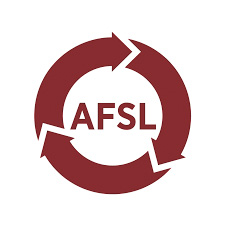Is a valuation necessary to sell?
Whether you need a formal valuation to sell your financial planning business depends on several factors, including the complexity of your business, the size of your practice, the buyer’s needs, and your confidence in understanding the value of what you’ve built. Here’s a breakdown of why you might or might not need one:
Why You Might Need a Valuation
Accurate Pricing: A professional valuation can help you establish a clear, data-backed asking price. Financial planning businesses are often valued based on funds under management (FUM), revenue, client retention, and profitability. A valuation ensures you have a solid, unbiased estimate of what your business is worth.
Complex Businesses: If your business has multiple revenue streams, numerous employees, or a diverse client base, a valuation can help simplify the process for you and potential buyers. It can factor in future growth projections and provide a comprehensive view of the business’s financial health.
Negotiation Leverage: Having a formal valuation gives you credibility during negotiations. It shows buyers that your asking price is based on an objective assessment, not just your attachment to the business.
Buyer Confidence: Buyers—especially if they are new to the industry or part of a more prominent firm—may want to see a formal valuation before they feel comfortable making an offer. It gives them a clearer understanding of what they’re getting and helps ensure they pay a fair price.
Why You Might Not Need a Valuation
Smaller or Simple Practices: If your business is straightforward—perhaps just you, a small team, and a manageable client base—you might not need a total valuation. Many buyers in the financial planning industry are experienced enough to evaluate the business based on assets under management, client retention rates, and annual revenue.
Strong Buyer Relationships: If you have a buyer already familiar with your business, they may not require a formal valuation. Instead, you can negotiate based on your knowledge of your client relationships, revenue streams, and growth potential.
Industry Standards: Sometimes, you can price your business based on industry multiples. For example, financial planning businesses are often valued at a multiple of revenue, which gives you a rough idea of what your business might be worth without needing a formal valuation.
Transparency and Clean Financials: If you have transparent, detailed financials and a stable revenue history, you may not need a formal valuation to justify your asking price. Transparent financial records and a thorough explanation of your client base and growth potential can sometimes be enough to satisfy buyers.
In Summary
- A valuation is helpful for more complex businesses or to provide confidence to buyers and clarity during negotiations.
- It may not be necessary if your business is smaller, more straightforward, or confident in pricing it based on industry standards and your knowledge of the business.
Ultimately, the decision depends on your business structure, your confidence in the selling process, and the buyer’s expectations.
Buying Property off-the-plan
Buying property off-the-plan can be risky, particularly in today’s uncertain economic climate. In recent years, many financial planners have been cautious about recommending direct property purchases to their clients, especially off-the-plan developments. Here’s why:
Lack of Professional Indemnity (PI) Insurance Coverage
One of the main concerns is that many licensees do not allow their authorised representatives to recommend direct property investments. Professional indemnity (PI) insurance, which protects the licensee and financial planner from client lawsuits over financial loss, often does not cover direct property recommendations.
Volatility in the Property Market
While property prices have risen over the past two years, history has shown that the market is prone to fluctuations. Any downturn can lead to substantial losses for investors, particularly those who have invested in off-the-plan properties.
Challenges in the Construction Industry
Since the COVID-19 pandemic, hundreds of property developers and builders have become liquidated, and the construction industry has faced ongoing challenges. Shortages in tradespeople and building materials, along with skyrocketing costs, have led to massive delays in property completion. Building costs have increased by over 40%, affecting developers’ profit margins and sometimes leading to project failures. For off-the-plan buyers, this has meant that deposits are often tied up for years without any guarantee of property completion.
Off-the-Plan Purchases: A Unique Risk
While this can seem attractive in a booming market, it becomes incredibly risky during uncertain times. Buyers can wait years for their property to be completed without control over delays or cancellations. In the worst-case scenario, the buyer could lose their deposit entirely if a developer goes into liquidation.
In the current environment of construction delays, rising costs, and developer liquidations, off-the-plan purchases are especially risky.
Interest Rate Risk
Another layer of risk is the rising interest rate environment. As inflation continues to be a concern, central banks may raise interest rates again, which could increase borrowing costs for property investors. This makes off-the-plan purchases even more dangerous, as buyers could be unable to finance the property when it is finally completed or stuck with higher-than-expected mortgage payments.
Conclusion
In this climate, financial planners and investors are better served by a conservative approach, prioritising transparency and careful risk management over potentially risky property ventures.
Selling an Australian Financial Services License
Australian Financial Services Licenses (AFSLs) are valuable assets, and there is increasing demand for them in the market. Financial planners looking to exit the industry can sell their AFSL once their financial planning clients have been transferred to another licensee. Selling an AFSL is relatively straightforward but requires proper legal advice.
Key Points to Consider When Selling an AFSL
Client Transfers: Before selling an AFSL, transferring your financial planning clients to another licensee is essential. This step ensures the AFSL is dormant and ready for sale without any active business responsibilities attached.
Professional Indemnity Insurance: After the sale, professional indemnity (PI) insurance can be managed in two ways:
· The existing policy can remain in place, or
· The buyer can set up a new PI insurance policy once they take over the AFSL.
Sale Process:
· The buyer acquires the company that holds the AFSL, not just the license itself.
· The process generally takes 3 to 4 weeks, during which specialist lawyers handle the transfer of the company and its assets.
· Radar Results uses lawyers with expertise in AFSL transfers, ensuring the process is smooth and efficient.
Changes in Directors and Shareholders: As part of the sale, the company’s directors and shareholders are replaced with the buyer’s. The Responsible Manager (RM), crucial for maintaining the AFSL’s compliance obligations, often remains in place unless the buyer has their own RM ready to step in. In some cases, ASIC prefers having two RMs on an AFSL to ensure greater security and oversight.
AFSL Market Value: The value of an AFSL depends on its authorisations and capabilities. Over the past year, demand for AFSLs has risen significantly, increasing prices. A basic or “vanilla” AFSL, which typically has limited authorisations, has seen its price increase from $20,000 to $40,000 due to the heightened demand.
Why Sell an AFSL?
With the high demand for licenses in the financial planning and advisory industry, selling an AFSL can provide an exit strategy for retiring financial planners. For buyers, acquiring an existing AFSL can save time and resources compared to applying for a new one with ASIC, which can be lengthy.
Senior Accountant and Group Operations Manager – Narellan and Camden area of Southern Sydney.
A large client of Radar Results is looking to purchase an accounting practice with staff. However, the owner is retiring and needs to transition their role over time. The practice receives over $800,000 in accounting fees per annum, and an excellent salary is available for the successful applicant. Details are below on what is required, and in the first instance, please contact the Radar Results NSW Manager, Brett O’Malley, at brett@radarresults.com.au or 0414 721 900.
Position title – Accountant
Position type – Full-Time
Location – Narellan & Camden, NSW
Supervisor/Manager – Senior Accountant and Group Operations Manager
Main duties/responsibilities
Preparation of monthly and quarterly Business Activity statements for clients
Reconciliation of bank accounts and quarterly/annual accounts
Data entry of bank statements, invoices, receipts and other source documents
Preparation of quarterly/annual accounts and required workpapers
Review client data and correct it if necessary
Preparation of Individual, Partnership, Trust and Company Tax returns
Experience and skills
Minimum 3 years experience in client-facing Accounting services provision
Experience with Accounting software such as Xero, XPM and MYOB (highly desirable)
Free Appraisals – What’s your business worth in the market place?
In addition to its comprehensive range of services, Radar Results offers a valuable Free Appraisal service tailored to practices considering selling. This service has been a cornerstone of Radar’s offerings, providing invaluable assistance to numerous individuals, including partners seeking buyouts, and genuine sellers, since 2006.
With a track record of preparing over 1000 appraisals, Radar Results has a reputation for delivering accurate and highly appreciated assessments. These written opinions serve as crucial tools for practitioners looking to gauge the value of their businesses in the market.
When conducting an appraisal, Radar Factors in various key metrics to provide a comprehensive evaluation:
1. Financial Performance: This includes factors such as total revenue, recurring revenue, and EBIT (Earnings Before Interest and Taxes), offering insights into the practice’s profitability and sustainability.
2. Business Characteristics: Radar considers elements such as the business’s location, the age demographic of its client base, the types of platforms utilised, fee structures, and the ratio of clients to Funds Under Management (FUM). These factors provide a nuanced understanding of the practice’s operational dynamics and market positioning.
3. Risk Assessment: For “risk-only” type businesses, additional measurements are employed to assess the level of risk inherent in the operation. This meticulous approach ensures that all aspects of the business are thoroughly evaluated, enabling a more accurate appraisal.
By meticulously analysing these parameters, Radar Results delivers comprehensive appraisals that offer practitioners valuable insights into the market value of their businesses. This enables informed decision-making regarding potential sales, partnerships, or other strategic initiatives.
Overall, the Free Appraisal service Radar Results provides is a testament to their commitment to supporting practitioners throughout the selling process, empowering them with the knowledge needed to navigate this significant transition with confidence.
Enquire About a Free Appraisal
| No Fees or Commissions |
| Are you selling your business or client register? Radar Results as buyers agents can connect you with motivated buyers. No contract signed, no payment of commission or fee. Radar Results will prepare a free Business Profile which you can present to prospective buyers. Radar Results will also provide you with documentation and advice to help you through the sale process. |
| Free Sellers Kit – Order a copy |
| The free ‘Sellers Kit’ can save you a lot of time and money. The kit will provide a list of professionals researched by Radar Results and have been deemed to be experts in their respective fields. In addition to a Sellers Check List, the kit contains plenty of information specially designed for financial planners wanting to ensure they have covered all bases prior to selling. |
John Birt – CEO
Radar Results – Buyers Agents









